What is airplane mode, anyway? 5 travel questions about flying with phones answered
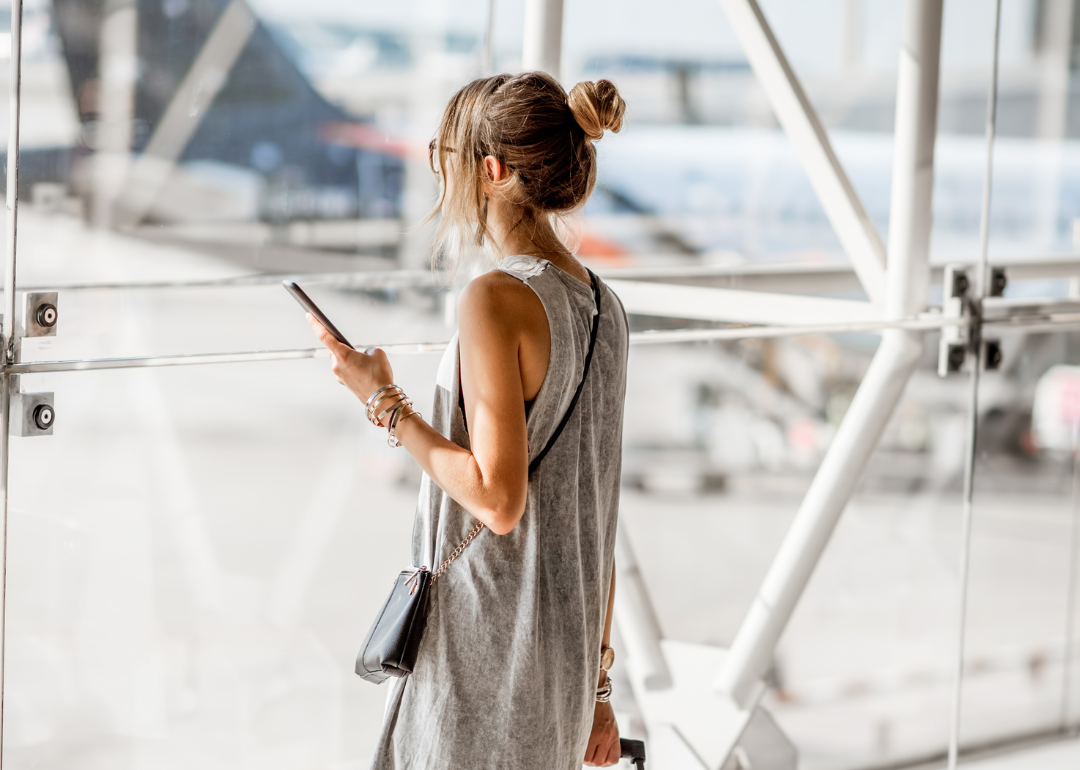
Canva
What is airplane mode, anyway? 5 travel questions about flying with phones answered
A woman holding a phone, looking out the window of the airport.
In many ways our phones have become the keys to our lives. We use them to bank, take photos of our families, and share those pictures on social media. We use them to buy everything from clothes to groceries to gasoline. And there’s a good chance your phone holds an entire archive of every for-friends’-eyes-only texts you’ve ever sent.
Even if we’re planning to unplug on a trip, it feels almost unthinkable to leave our phone at home. We use them to check in for flights, act as our boarding passes, book ride-shares or plan bus routes, find restaurants, check museum hours, or just kill time. But given all the extra phone usage that comes with travel, we’re presented with myriad new concerns. What’s safe and what isn’t? Can you trust this public Wi-Fi network? Our pocket-sized devices may feel even more necessary outside of our comfort zones (not to mention time zones), so protecting them and all the info they hold seems even more critical when we’re away from home.
In partnership with Visible, Stacker looked at recommendations from manufacturers and consumer experts for smart and safe ways to fly with your phone. Can you use an unprotected Wi-Fi network at a cafe? Should you trust the chargers on the plane? Find out the answers to those questions and more.
![]()

Canva
Is it safe to use airport Wi-Fi?
A woman using a laptop at an airport.
The fear of public Wi-Fi hotspots is something of a relic, according to experts who spoke with the Washington Post. These days, most reputable websites and apps use HTTPS. This protocol encrypts data, making it very hard for potential digital eavesdroppers to spy on you. Before leaving home, make the most of HTTPS by setting your web browser to use only that connection type.
Check to ensure your web activity uses HTTPS by looking for these letters at the start of any URL or website address. Pages that start with HTTP are not encrypted. It’s more difficult to tell whether mobile apps encrypt their traffic, so surfing for entertainment is better than accessing sensitive information while out and about.
If you’re checking particularly sensitive information—say, your bank account—you can upgrade your security with a trustworthy virtual private network. VPNs further encrypt your digital traffic, making it virtually impossible for any eavesdropper to access it. Still, before connecting to an unsecured public Wi-Fi, use your mobile network to turn your phone into a hotspot.
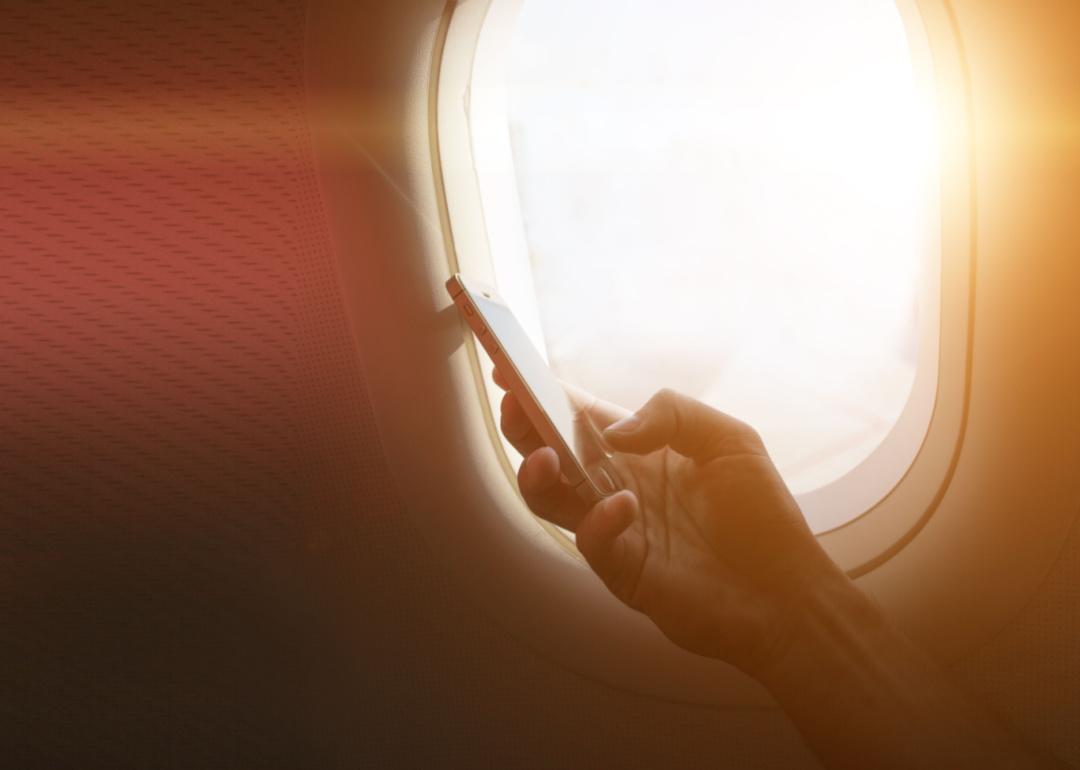
Hlib Shabashnyi // Shutterstock
What happens if you don’t use airplane mode?
A person holding a phone next to an airplane window.
The Federal Aviation Administration bans cell phone calls on flights because of how the phone’s signals interact with the plane’s electronics. However, you can still use your phone if you put it in the aptly titled “airplane mode.” This mode, which is standard on all modern smartphones, disables the phone’s cellular connection as well as its Bluetooth and Wi-Fi capabilities.
It’s worth keeping in mind that forgetting to turn on airplane mode is extremely unlikely to endanger your flight. As it turns out, according to a 2017 survey by Allianz Global Assistance, 2 in 5 people report leaving their cell service enabled on flights, and there’s no evidence signal interference from a cellphone has ever caused a crash. It’s still best to listen to the airline’s guidance regarding cell phone use in-flight.
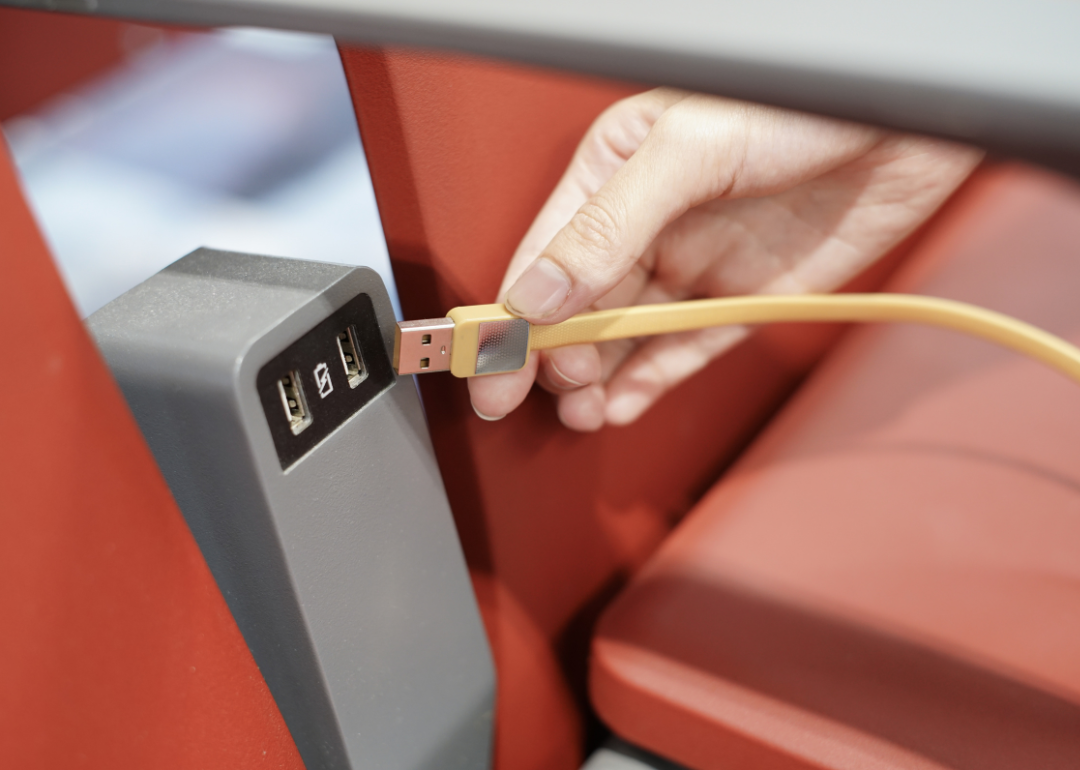
Canva
Can you trust the chargers on the plane?
A person plugging in a phone charger between seats.
While not quite an out-of-date belief, “juice jacking“—a technique where a hacker uses public chargers to install spyware on your phone—is relatively unlikely, according to experts who spoke with the Washington Post. According to the FCC, cybersecurity experts warn that general public USB ports can have malware installed. If a public USB charging port prompts you to share data once you plug in your phone or mobile device, don’t.
There are safer ways to charge your phone. Use your own charging cable and turn your phone off while it charges. If you want to be extra cautious, use a data-blocking adapter. These plugs connect to your USB cord and block its ability to transfer data, allowing you to charge safely.
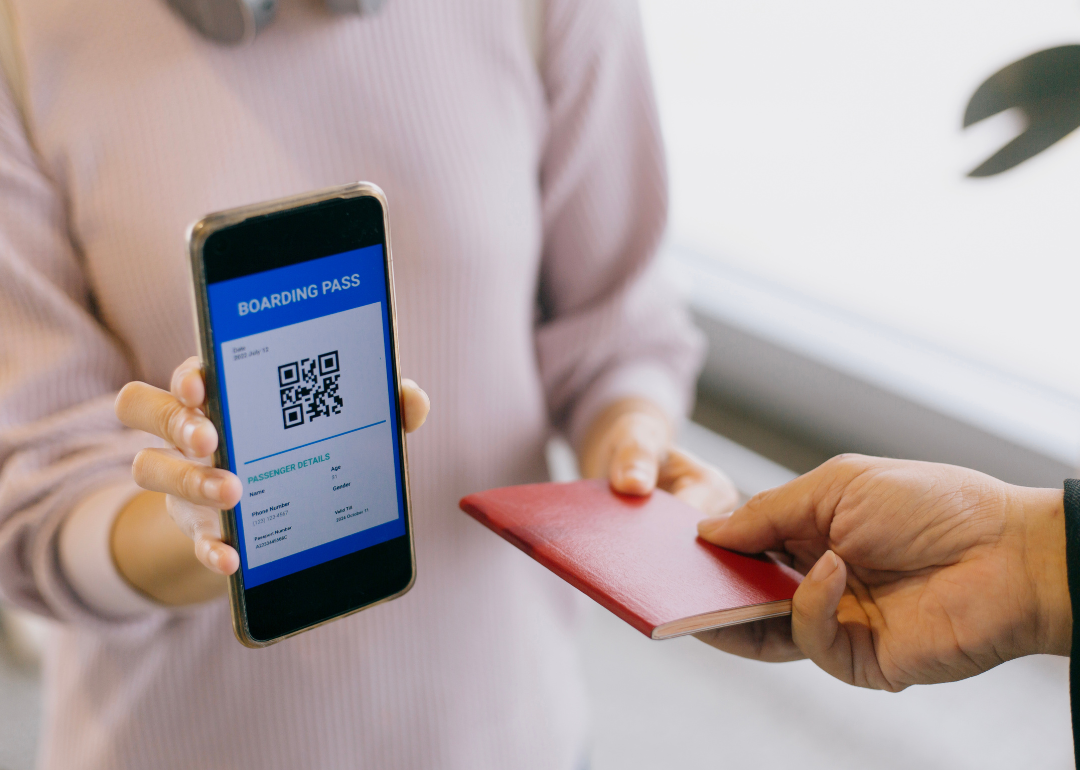
Canva
How can you conserve your battery on a long flight?
A person holding up a phone with a mobile boarding pass, handing someone a passport.
If your phone is your boarding pass, your ride planner to your hotel, and credit card to pay for said hotel, you need it to be on. Airplane mode will save you some precious battery time by disabling a few energy-draining features of your phone. Even more useful are the battery-saving modes, which turn off certain features like email fetching or lower the phones brightness, that most phone manufacturers offer.
If you’re still getting dinged with low-battery warnings, invest in a portable charger—a compact, spare power bank that can get you back to 100%.
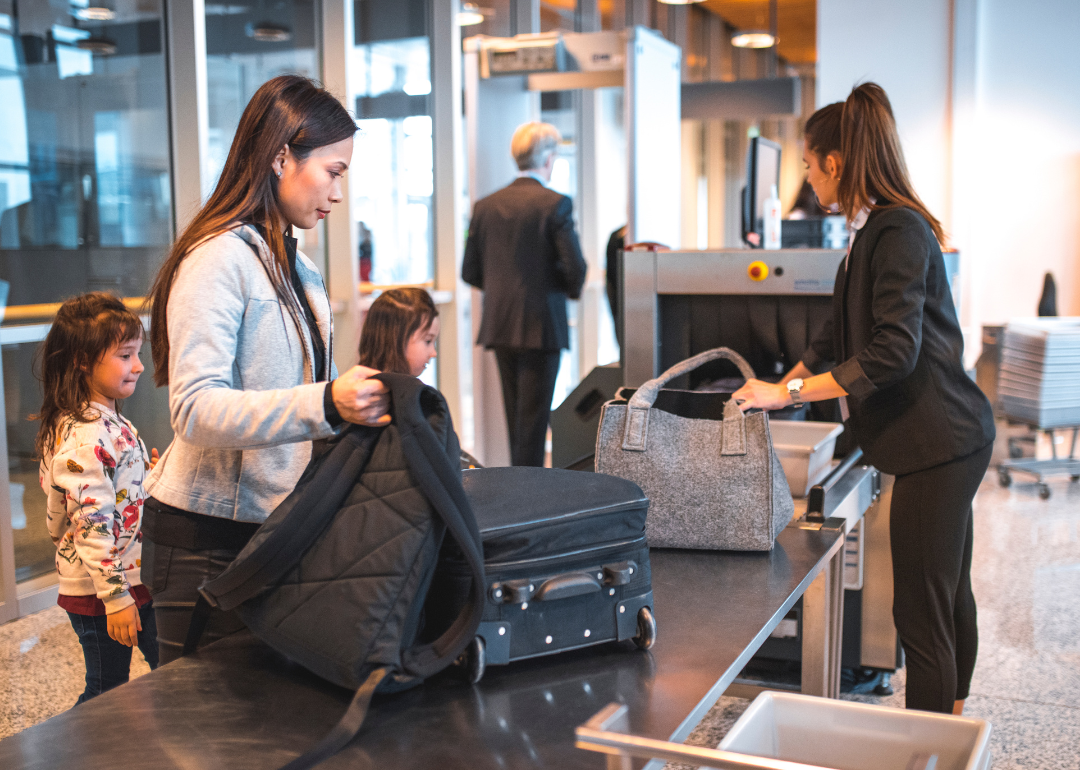
Canva
What’s with all the rules about lithium batteries?
People putting luggage through a scanner at the airport.
If you’ve taken a flight recently, you’ve undoubtedly heard the rules about lithium batteries. For instance, if you check a bag with a lithium-battery-powered device, that device must be powered off. You must also keep any spare lithium batteries in your carry-on luggage.
The reason for all this? It’s a lot more vital than keeping your phone in airplane mode. In the past five years, the number of fires related to lithium-ion batteries has jumped over 40%, according to a CBS News analysis of Federal Aviation Administration data. Before the next time you jet off, check the FAA’s website for what to do with all your electronic devices.
Story editing by Carren Jao. Copy editing by Kristen Wegrzyn. Photo selection by Lacy Kerrick.
This story originally appeared on Visible and was produced and
distributed in partnership with Stacker Studio.
